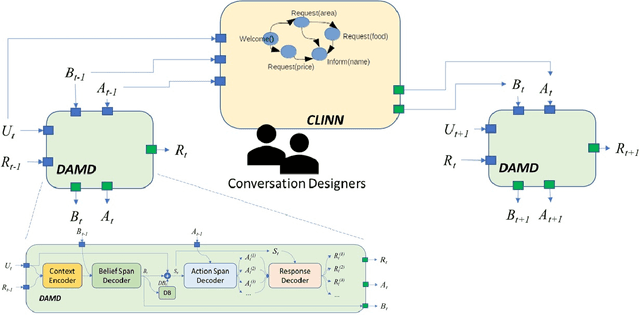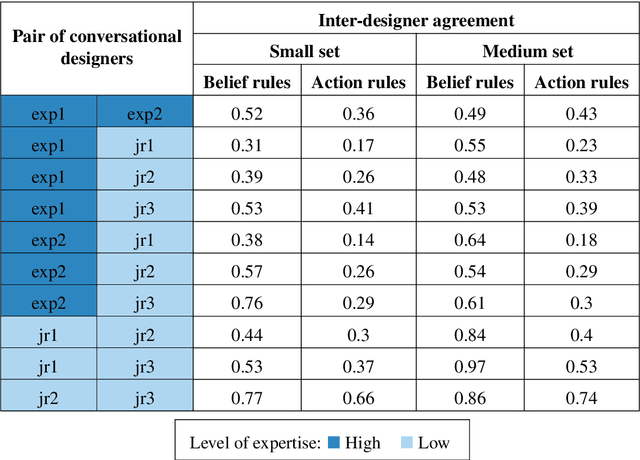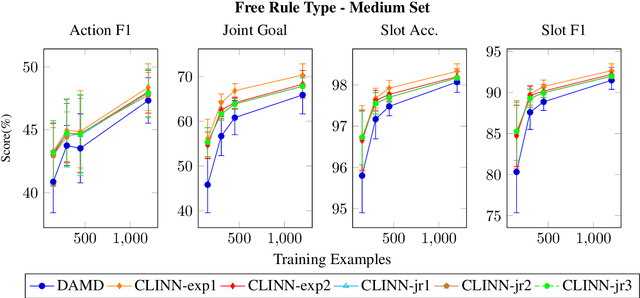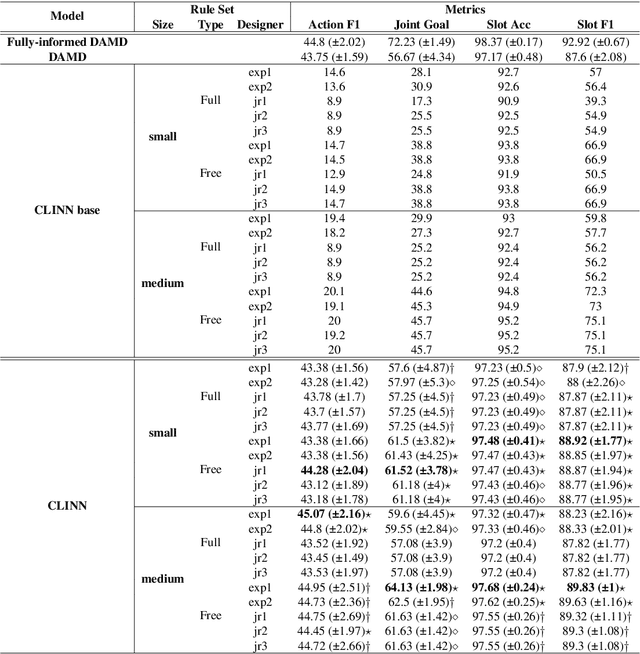Every time I fire a conversational designer, the performance of the dialog system goes down
Paper and Code
Sep 27, 2021



Incorporating explicit domain knowledge into neural-based task-oriented dialogue systems is an effective way to reduce the need of large sets of annotated dialogues. In this paper, we investigate how the use of explicit domain knowledge of conversational designers affects the performance of neural-based dialogue systems. To support this investigation, we propose the Conversational-Logic-Injection-in-Neural-Network system (CLINN) where explicit knowledge is coded in semi-logical rules. By using CLINN, we evaluated semi-logical rules produced by a team of differently skilled conversational designers. We experimented with the Restaurant topic of the MultiWOZ dataset. Results show that external knowledge is extremely important for reducing the need of annotated examples for conversational systems. In fact, rules from conversational designers used in CLINN significantly outperform a state-of-the-art neural-based dialogue system.
 Add to Chrome
Add to Chrome Add to Firefox
Add to Firefox Add to Edge
Add to Edge